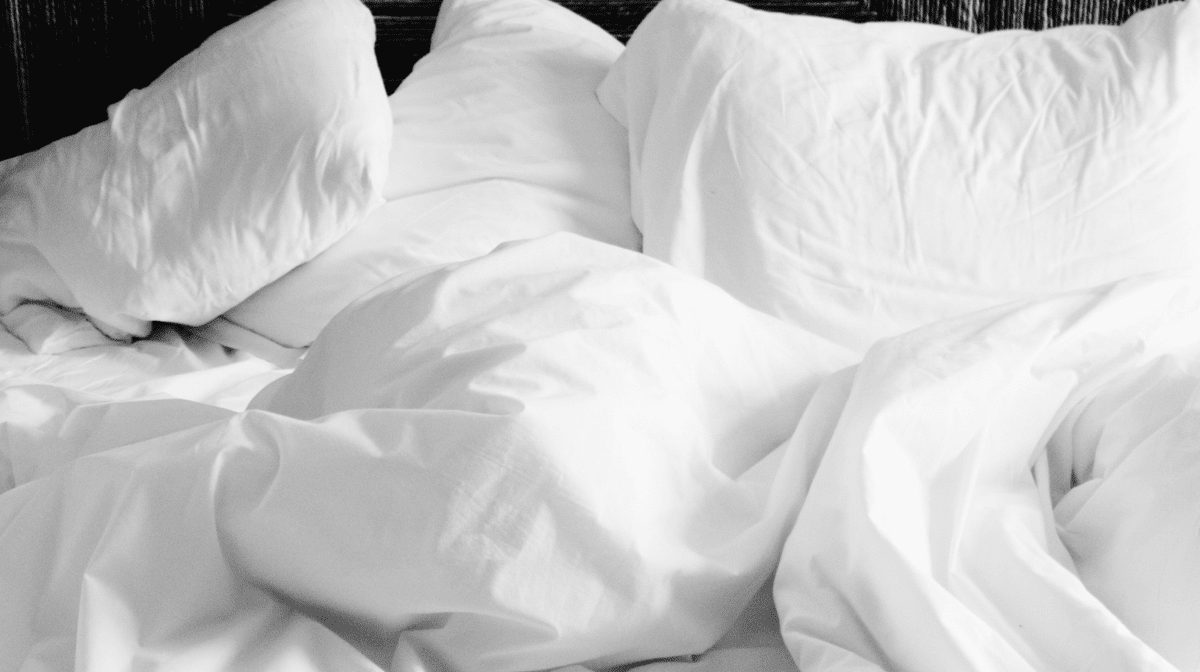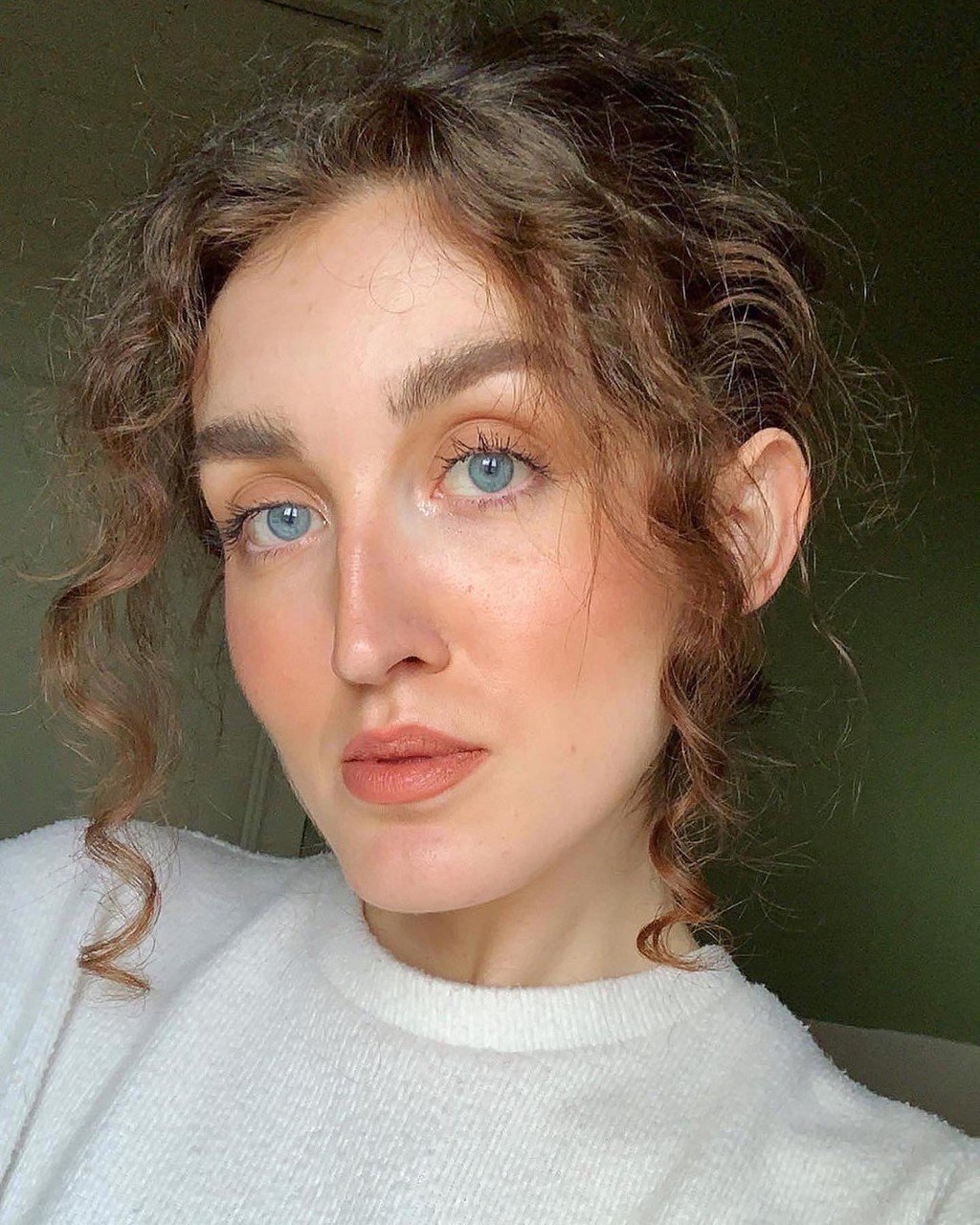Do you often find yourself searching the web at midnight looking for tips for better sleep? (Guilty). Well, you’ve arrived at the perfect place as this World Sleep Day we spoke to sleep expert Christabel Majendie to ask about her tips on how to sleep through the night to help you catch those precious Zzz’s.
Want to learn more? Duh, of course you do! Keep scrolling to find out how stress affects sleep, the best relaxation tips for sleep and Christabel’s expert tips on how to sleep through the night to wake up refreshed and restored. Dreamland awaits you…

Christabel Majendie is a sleep expert and therapist. She works with individuals and organisations to better people’s lives by improving their sleep using evidence-based techniques and education based on sleep science.
1. Why Is Sleep So Important For Our Health?
Sleep is one of the pillars of health, as important as regular exercise and good nutrition. Sleep is a biological process that involves many active processes relating to repair, detoxication, regulation of hormones, emotions and metabolism, laying down memories and learning. Most people are familiar with the short‐term effects of sleep deprivation with reduced performance the next day. But people are less aware of the long‐term effects of not getting enough sleep. Consistently sleeping less than you need is associated with an increased risk of heart disease, diabetes, obesity, mental health problems and reduced life expectancy. If sleep was bottled and marketed, everyone would buy it for its benefits! So sleep needs to be prioritised.
2. Do You Think That People Are Compromising Sleep?
I work with two types of people: those who don’t give themselves enough opportunity to sleep and those who prioritise sleep but who are struggling to sleep. The latter are not sleep depriving themselves but the former are compromising their sleep. Sleep is often cut short for work or social reasons and there is a public health campaign among sleep experts to get people to understand the negative effects of not allowing themselves enough time to sleep.
“I often hear someone telling me they are fine on 4-5 hours of sleep but they are not fine.”
3. How Many Hours Of Sleep Should We Be Getting Per Night?
Everyone differs on how much sleep they need but most people need somewhere between 7 to 9 hours. However, there are a few very rare individuals who can’t generate this much sleep even if they try. I often hear someone telling me they are fine on 4‐5 hours of sleep but they are not fine, they have just got used to being sleep deprived. Consistently sleeping less than 6‐7 hours is associated with long‐term health problems described above.
4. How Does Stress Affect Sleep?
When you perceive stress, your brain thinks you are in physical danger, even if the stress is a worry. Your body then prepares you for the potential threat to your safety by making changes to your breathing, heart rate, muscle tension, mental alertness. These changes are helpful if you need to run or fight but not helpful when you are trying to sleep. Sleep puts us in a vulnerable state, especially if we are in danger, so a normal response to stress is sleeplessness. The sleep problems usually pass when the stress has gone or when we adjust to the stress. This can take a few days but it can last a number of weeks.
5. Are You Seeing A Lot Of Clients Experiencing Lack Of Sleep Due To The Pandemic?
I think I did see an increase in the number of people contacting me around the time of the first lockdown. This was a highly stressful time for many people with concerns about personal health, the safety of loved ones, changes to how we work, financial insecurity, home‐ schooling, even going food shopping became a stressful experience. So, it’s no surprise people experienced some sleep issues. It’s important that people put their sleep in the context of their lives because like I said, short‐term sleep problems are normal during times of stress and these will normally resolve if people don’t become overly concerned about it. The best you can do in these times is apply good sleep hygiene (see sleep hygiene tips below), not worry about your sleep and focus on looking after yourself generally with exercise, good nutrition, taking breaks, talking to people and doing things that take your mind off the stress.

Celebrate Sleep Awareness Month with mio’s curated bodycare edit to improve your sleep routine.
6. What Is The Best Sleeping Environment?
It’s best to sleep in a dark room which is quiet. The advice is to sleep in a cool room (about 16‐18 degrees) because to get to sleep your core body temperature needs to drop. You need a comfortable mattress and pillows to suit your individual taste and appropriate bedding and bedclothes for the season. Fluctuations in body temperature can disturb sleep so use bedding and bedclothes made from natural fibres as these are better at regulating your body temperature compared to synthetics.
7. What Are Your Top 5 Best Sleep Tips For Getting A Great Night’s Sleep?
To maximise your chances of sleeping well, follow good “sleep hygiene.” The best sleep hygiene tips and guidelines include exercising regularly, avoiding caffeine in the afternoon and evening and limiting alcohol. It’s important to get outside in the morning or lunchtime every day as daylight at this time strengthens your internal body clock (the circadian rhythm). Artificial light in the evening can interfere with this system, causing problems getting to sleep and disrupting sleep. For this reason, you need to dim the lights and put away light emitting devices an hour before sleep and not look at them when attempting to sleep. An hour before sleep, do mentally quiet activities to wind down for sleep, such as reading, listening to music, having a bath, relaxation techniques. It’s also important to keep your bed mainly for sleep (and sex) so don’t lie or sit on your bed during the day or when you are relaxing before sleep or in the morning.
8. Can You Recommend Some Relaxation Tips On How To Sleep Through The Night?
Deep breathing and progressive muscle relaxation, where you systematically tense and relax muscle groups around the body, are good relaxation techniques to prepare you for sleep. But you need to regularly train yourself in the day for these to be effective. Aim to practise these 1‐2 times in the day and as part of your wind down before sleep, but don’t do them in the bed unless you are really familiar with them. Remember these are techniques to help you relax not to force you to sleep. If you are struggling to sleep, the advice is to get out of bed after an estimated 20 minutes (without clock watching), sit in dim lights or the dark and do some relaxation exercises, read or listen to music then go back to bed.
“Lavender has the most research behind it with studies showing it promotes sleep.”
9. How Does Aromatherapy Benefit Sleep?
This is an interesting area of research. A number of aromatherapy oils have been found to benefit sleep. Much of the research is from small, single studies so they need to be replicated before results are established. Lavender has the most research behind it with studies showing it promotes sleep by having a calming effect on heart rate, blood pressure and mood. In addition, most people associate aromatherapy with relaxing so when we use aromatherapy this memory can enhance our relaxation response. It’s important to note that while safe for the majority, some people may experience an allergic reaction, so obviously stop use in these cases. Also, some evidence indicates, in rare cases, aromatherapy oils can have adverse effects in children so avoid use in this age group.
10. What Are Your Favourite mio Products?
I’m a fan of mio products as they are cruelty free, vegan, plant‐based products which fit with my values of living sustainably. I love the Go With The Flow Calming Body Oil as massage is a great way to wind down for sleep and it smells gorgeous. It also contains Lavender Oil which research shows helps to switch on the relaxation response. Another good way to wind down for sleep is to have a warm bath or shower (not too hot though!) about an hour before you intend to sleep. Your body temperature will rise in the bath then cool down when you come out and this can help you to feel sleepy. I love mio’s Sleeping Smoothie to apply after a relaxing bath to help me prepare for sleep.

